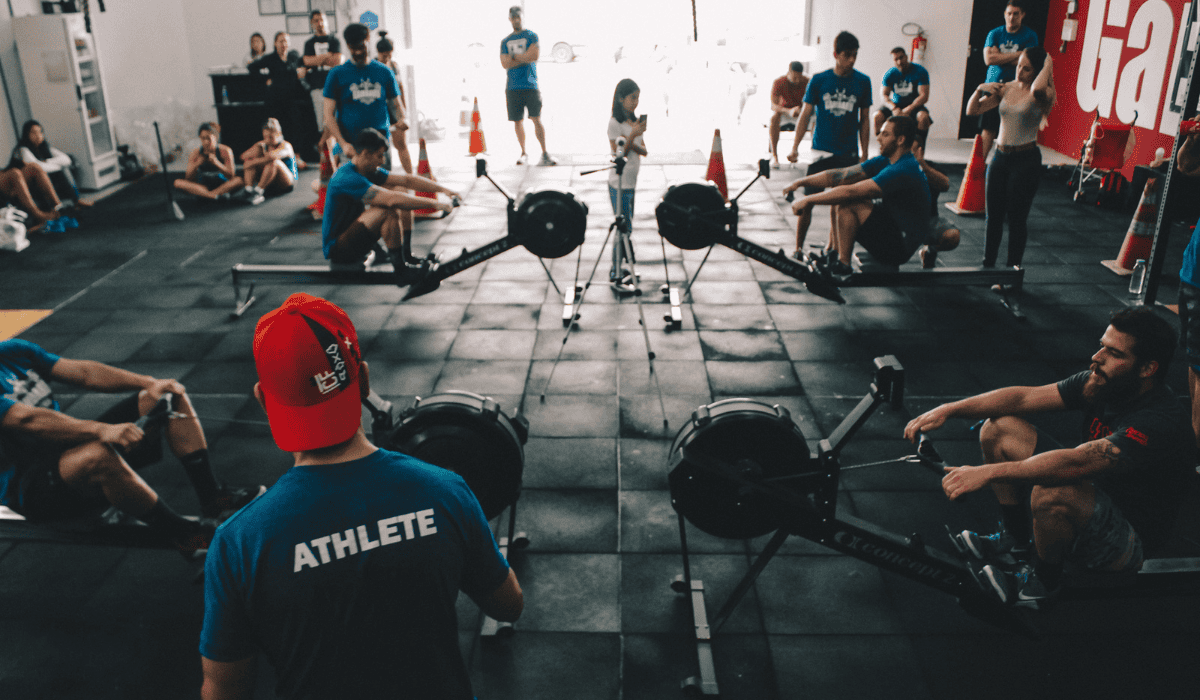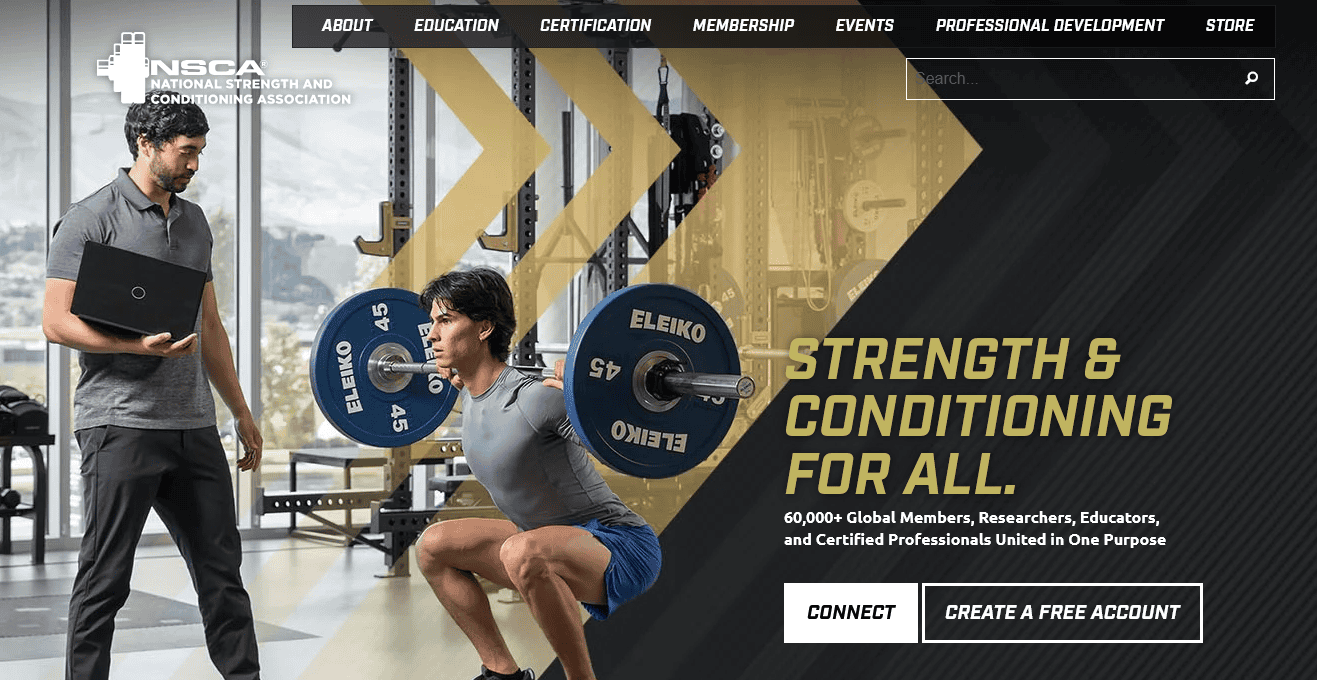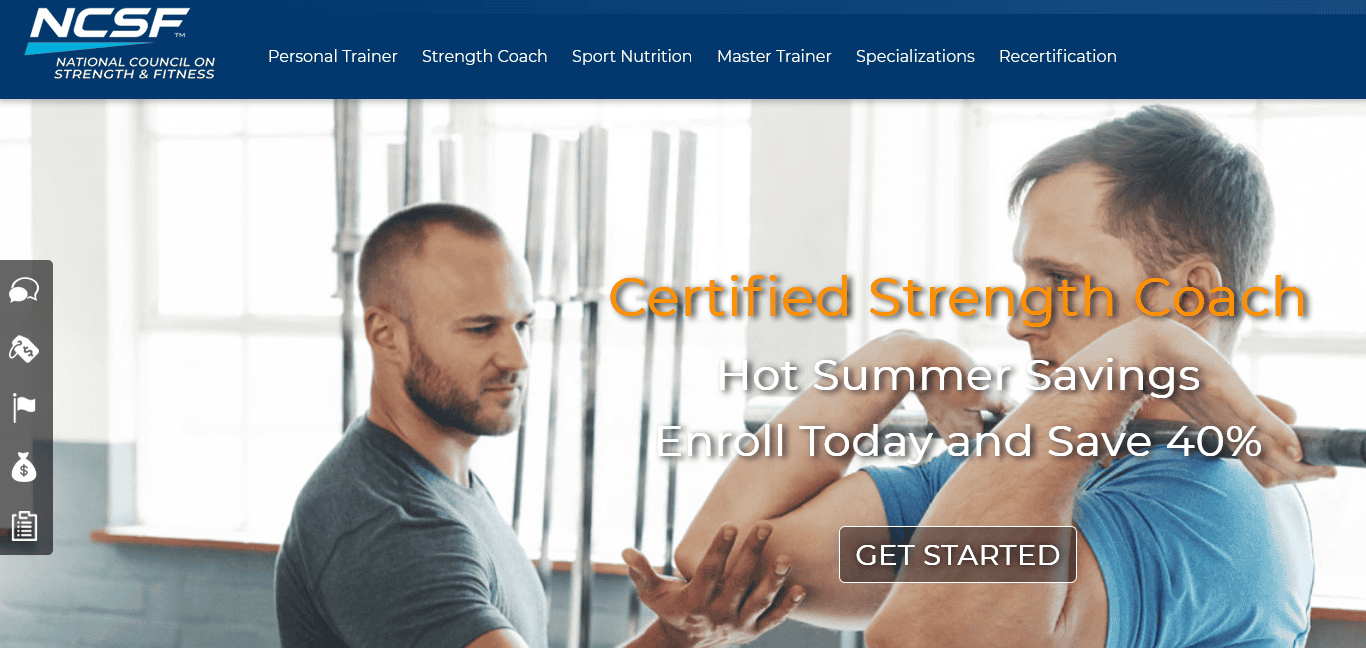When I got certified, I wanted the absolute best strength and conditioning cert. But I had some problems defining “best.” It seems like everyone I talk to had a different idea of which one was best, but they all had their respective reasons for choosing the ones they did, and so did I.
So, these are my best strength and conditioning certifications ranked, including info on when you should consider one over the other.

Topic Contents
A Quick Rundown:
If you’re just starting out and are trying to break into the world of exercise science, you might want to consider the NSCF CSC. The NSCA CSCS is best if you already have a strong background in sports science that you’re building on. ISSA SCC is the best option for those who have some background, need flexibility, or want to do everything online.
The Top Strength and Conditioning Certifications Ranked
1. NSCA CSCS

The NSCA Certified Strength and Conditioning Specialist cert is among my top picks. It is considered by many to be the gold standard, but it is also the most difficult to get.
They have 3 main requirements:
- Live in the US
- Must hold a bachelor’s degree or be in your senior year–doesn’t have to be related to sports or sports science, so that’s something
- CPR/AED certification
Even though they say that your bachelor’s degree doesn’t have to be in a field related to sports science, it is sort of implied. They expect you to have some sort of background in exercise science, and if you do that’s great, but if you don’t, and you just want to add this as something in your repertoire, you’re going to find that the study materials really aren’t that great.
You get:
- Live clinics with hands-on experience
- The primary textbook
- Online practice quizzes
- Supplemental textbooks like the exercise technique textbook
As far as the test is concerned, there are two main parts:
Part 1
95 multiple-choice questions for scientific foundations and you have 1.5 hours to complete it. It covers things like:
- Anatomy and physiology
- Biomechanics
- Nutrition
Part 2
The other part is the practical and applied section which has 125 questions you have to complete in 2.5 hours and covers things like:
- Program design and evaluation
- Testing and exercise techniques
You need to get at least a score of 70, out of 99. It has one of the lowest pass rates. If you fail and want to try again, it will cost you another $340 on average for a re-test fee. However, if you pass one of the sections, your cost for a re-take goes down by about $100.
2. ISSA SCC

A relatively new cert, the Strength and Conditioning Coach is great because it can be done entirely online. The requirements are much more forgiving and accessible by a wider range of people:
- At least 18 years old
- With a high school diploma or GED
- CPR/AED cert
This is accredited by the DEAC.
Study materials include:
- Hardcopy of the textbook
- Animated exercises available online
- Online student forums
- Practice exams and quizzes
- Access to SEC professionals for extra help
The final exam, too, can be done entirely online so this makes it a lot easier for people who are trying to squeeze in a certification at night or around other personal or professional obligations. There isn’t a time limit on the test, and it’s open book so you can go as slowly as you need to make sure that you’re doing things correctly.
What about failure here? Probably one of their better features: you can retake the test for free if you fail as long as you retake it within 30 days. If you failed twice then you have to pay a nominal fee and wait 12 months before retaking your exam.
While this might seem a little harsh, to me it really speaks of the professionalism behind the certification because if you failed by a small margin, due to some odd error, you can retake and hopefully you’ll get where you need to go but if you failed because of a big margin and you need more study time, they give it to you.
You might also be interested in: ISSA Nutrition Coach Certification Review
3. NCSF CSC

This is a great place for starting out if you don’t have any real background in exercise science and want the best bang for your buck in terms of the study materials you get.
Study materials come in different packages, and with increased cost comes increased access. For example, the highest level of study materials might be the most expensive but it also gives you:
- Two days or 16 hours of workshop instruction
- Reference guides
- Practice exams
- Instructional videos
- Review quizzes
- Continuing educational credit units
- Questions and answers
- Lesson notes
- Hard and digital copies of the textbook
- One-year membership
This test is done either online or in person but even if it’s done online you have a remote proctor who facilitates that test for you.
You have 150 multiple-choice questions, and several hours to complete all of the questions, and much like the CSCS you also must meet a 70% threshold in order to get your certification.
Their test is broken down into much more granular detail, including things like:
- Sport metabolism
- Anatomy and biomechanics
- Injury prevention and return to competition
- Professionalism
- Training techniques
- Advanced programming
- Nutrition
- Performance assessment and evaluation
What happens if you fail? You have to pay again to take the test and they make you wait 30 days before you can try again, presumably giving you time to study the areas you failed.
So, Which Strength and Conditioning Certification Is Best?
I would say:
- If you have a background in exercise science and you just want to take a test based on the knowledge you already have, or you are a member of NSCA, then the CSCS is great.
- If you have some background but you don’t necessarily have a bachelor’s degree in the field or you specifically want access to online curriculum and testing, go with the ISSA SCC.
- If you are brand new and you need your study materials to really help you break into the world of exercise science, go with the CSC.






